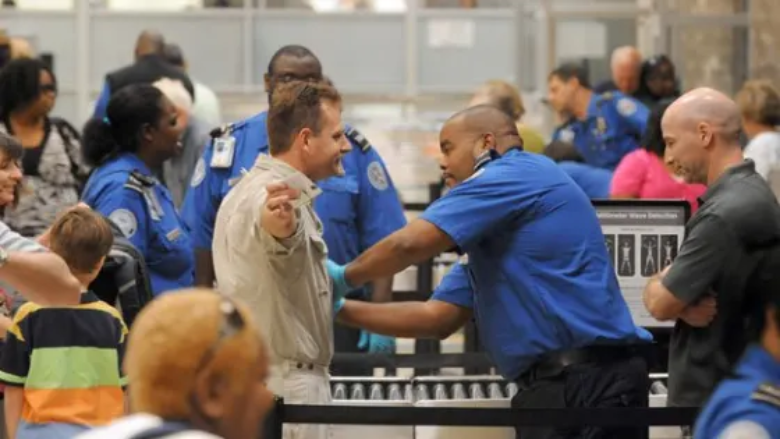A scathing new report from the Justice Department’s Office of the Inspector General (OIG) sheds light on troubling practices within the Drug Enforcement Administration’s (DEA) transportation interdiction program. Released Thursday, the report reveals systemic policy violations, questionable tactics, and the controversial use of paid informants in the agency’s civil asset forfeiture operations at airports and other transit hubs.
The findings have reignited scrutiny of civil asset forfeiture, a practice that allows law enforcement to seize property suspected of being connected to criminal activity—often without formal charges or due process. The OIG’s revelations highlight significant risks, ranging from constitutional violations to wasteful law enforcement practices.
New Podcast! Trump’s Nominees Rock DC – ET Talk
The OIG’s report uncovered numerous instances where the DEA failed to adhere to its own guidelines. One of the most glaring issues was the agency’s failure to document “consensual encounters” with travelers, as required. These encounters involve DEA agents questioning passengers or searching their belongings with consent. The report noted that such lapses create substantial risks of improper conduct.
“By proceeding with such interdiction activities in the absence of critical controls, such as adequate policies, guidance, training, and data collection, the DEA is creating substantial risks,” the OIG stated.
Training deficiencies further compound the problem. The DEA has not conducted mandatory transportation interdiction training since 2023, despite prior assurances to the OIG that it would ensure all personnel were adequately prepared. The lack of training increases the likelihood of improper or illegal actions by DEA agents.
One of the report’s most controversial findings was the DEA’s use of confidential informants—specifically, paying them a percentage of forfeited cash. In one case, the DEA paid an airline employee tens of thousands of dollars over several years for tips that led to cash seizures. This arrangement raises serious ethical and legal concerns, with critics accusing the agency of incentivizing informants to target travelers indiscriminately.
Civil asset forfeiture itself has long been criticized as a form of “policing for profit.” Under this practice, law enforcement agencies can seize cash, vehicles, and other valuables suspected of being connected to criminal activity, often leaving property owners to navigate a costly legal process to recover their belongings.
The OIG highlighted how these practices disproportionately impact innocent civilians, particularly when law enforcement agencies prioritize financial gains over justice.
The report also documented troubling encounters between DEA agents and travelers. In one instance, agents allegedly coerced a passenger into consenting to a search after the individual initially refused. After detaining the traveler’s carry-on bag, agents found no cash, drugs, or contraband. The incident caused the traveler to miss their flight.
A recording made by the traveler captured the encounter, as none of the DEA task force members wore body cameras—a policy gap the report criticized. The absence of body-worn cameras hampers transparency and accountability, leaving travelers vulnerable to potential abuses.
The OIG’s findings underscore systemic problems within the DEA’s handling of civil asset forfeiture. These issues are not limited to one agency; they reflect broader concerns about the practice across federal, state, and local law enforcement.
Civil asset forfeiture creates a perverse financial incentive for law enforcement agencies, critics argue. By allowing agencies to keep the proceeds from seized property, the practice encourages abuses and undermines public trust.
Some states have enacted reforms to limit or eliminate civil asset forfeiture, but many jurisdictions still permit its widespread use. The OIG’s report amplifies calls for comprehensive federal reform, including stricter oversight, training, and accountability measures for agencies like the DEA.
The OIG’s report serves as a wake-up call for the DEA and policymakers alike. The agency must address the deficiencies identified in the report, including proper documentation of encounters, comprehensive training for personnel, and stricter oversight of informant programs.
Moreover, the findings highlight the urgent need for broader reform of civil asset forfeiture practices. Lawmakers must balance the tools needed to combat crime with protections against abuses that harm innocent individuals.
For now, the DEA faces mounting criticism and calls for accountability. The question remains: will this report lead to meaningful change, or will the controversial practices continue unchecked?
The OIG’s report shines a harsh light on the DEA’s civil asset forfeiture operations, exposing practices that jeopardize both public trust and constitutional rights. As the debate over “policing for profit” intensifies, reform advocates see this as a critical moment to push for change. For the DEA, the path forward requires more than damage control—it demands a commitment to transparency, accountability, and justice.
